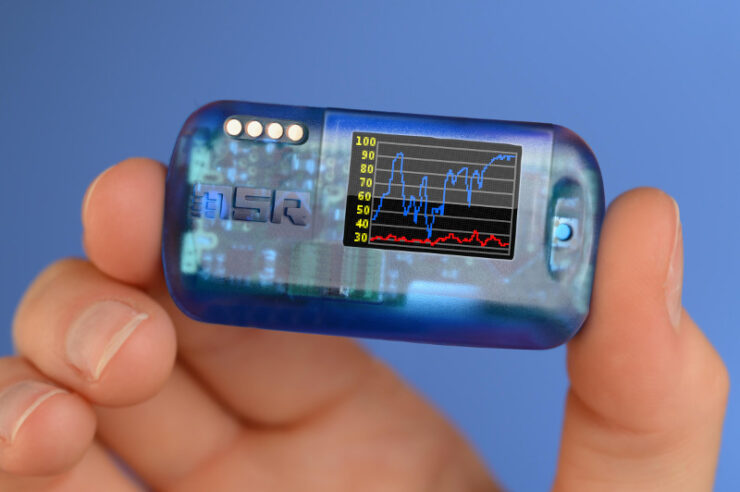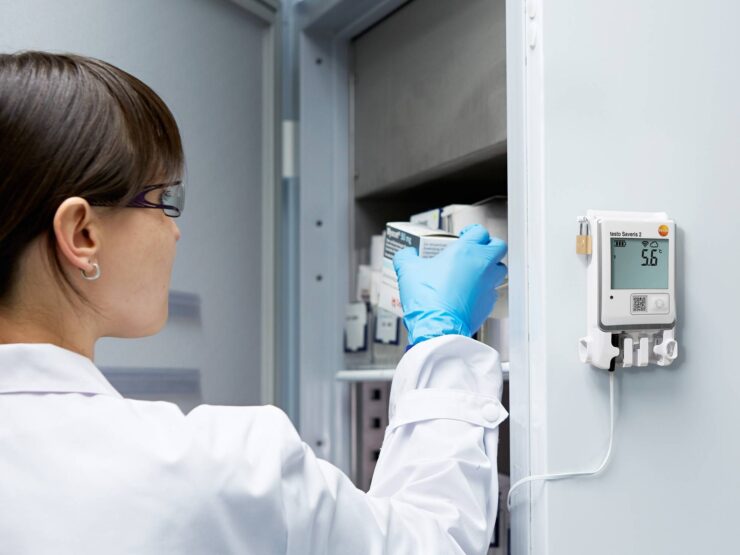Because of digitization, big data is becoming an increasingly important part of our everyday lives.
Advertisers use data to target marketing communications to specific demographics of consumers. Politicians use it to target key audiences with their message. Businesses use it to streamline their supply chains and operations. Data is extremely valuable because it is a prerequisite of informed decision making.
Consumers’ personal data is used by advertisers to sell their products and services, a fact that privacy advocates often rail against. On the other hand, operational and environmental data is used by businesses to protect consumers and their interests. This is a fact that is often lost in the political discourse around big data.
For example, companies in the food and beverage industry frequently use environmental data to make sure that food is stored at proper temperatures and conditions to prevent outbreaks of food-borne illness. Healthcare companies use environmental data to make sure that sensitive medical products are stored in appropriate conditions so that they don’t expire before reaching patients.
You might be wondering how these companies collect and record this important environmental data associated with their supply chain procedures and operations. Most commonly, these companies use data loggers to accomplish this challenging task.
Simply put, data loggers are electronic devices that capture, record, and log environmental data. There are a variety of data loggers that specialize in capturing different sorts of data. Common examples include data loggers that record temperature, humidity, and differential pressure data.
Often, companies are required to collect this data not just to keep consumers safe, but also to comply with local, state, and federal regulations. Regulators require companies in some industries to keep careful records of the environmental data of storage facilities in which products are being housed to prevent public health emergencies.
Page Contents
Choosing a Data Logger to Meet Business Goals

Given that the collection and logging of data is so important for many companies, many executives are searching for the best data loggers on the market to make sure they’re complying with regulations and protecting customers. Deciding which data logger makes the most sense for a business can be challenging, so let’s cover some of the most important factors you should consider when choosing your first data logger.
First and foremost, you should consider the internal company growth goals your firm wishes to achieve by using data loggers. It can be helpful to list the five to ten most important features you are looking for in a data logger.
If you are purchasing data loggers to comply with regulatory requirements, you should confirm that the data logger you purchase meets the standard set by those regulations. Bear in mind that there are often state, federal, and local regulations in place, and your choice of data logger must satisfy all the regulations that cover your business activities.
Data Logger Regulations and Storage Capacity

You should also consider that regulations such as Electronic Device Recording (ELD) mandates can vary significantly between neighboring countries. Many American companies, for example, have had difficulties shipping their goods throughout Canada because, while superficially these mandates appear the same, a deeper dive shows important differences. It can be a good idea to have your company’s legal team review the specific regulations that pertain to data logging in the geographical locales of your business before deciding which options to consider.
Besides regulations, you should consider what other objectives you wish to target by using data loggers, such as quality assurance standards that you wish to meet. What is important is that the key performance indicators of your business guide your choice in data loggers.
Another important consideration is the storage capacity of the data logger you choose. You need to make sure that you use a data logger that can store enough data to satisfy your quality assurance and regulatory requirements. Also consider that data loggers with lower storage capacity need to be checked more regularly.
Aside from the amount of information a data logger can store, you should also think about the accuracy of the data loggers you are considering. Different data loggers have varying margins of error, and you’ll need to choose a data logger that is accurate enough for your needs.
Standalone Data Loggers Vs. Wireless Data Loggers

When thinking about how to choose a data logger, an important distinction is between standalone data loggers and wireless data loggers. Dickson says that standalone data loggers are great for logging information that can be viewed and analyzed at a later time. However, wireless data loggers allow gathered data to be viewed in real time.
If it’s important for you to have real-time access to environmental data, a wireless data logger is a must. This can also be important if you need to receive alerts if temperatures or other environmental factors change suddenly. For companies in the food and beverage or healthcare industries, for example, it can be important to be notified if the temperature of a storage facility suddenly increases.
Another important consideration when choosing a data logger is the software that the data logger is compatible with. Many sophisticated data loggers can be used with software applications that allow you to format or analyze the data they collect. This can be useful for compliance purposes when submitting the data to regulators or for business intelligence gathering.
Many data logging softwares also include user-friendly administrative dashboards that make analyzing data easier through intuitive visual interfaces. That means that you will need less technical talent to make sense of the data that has been gathered.
Considering the Price of Data Loggers
When choosing a data logger, consider the price of the options at hand and which data logger best suits your budget. It’s important to put the price of the data logger in the larger context of how much time it will save you and your staff. Data loggers with more features might require less maintenance, data science skills, and manpower.
Make sure to consider not just the sticker price of each data logger you’re evaluating, but also the time it could save your organization in the future.
In general, data loggers are quite inexpensive given their impressive capabilities and potential to save companies money in the long run.

